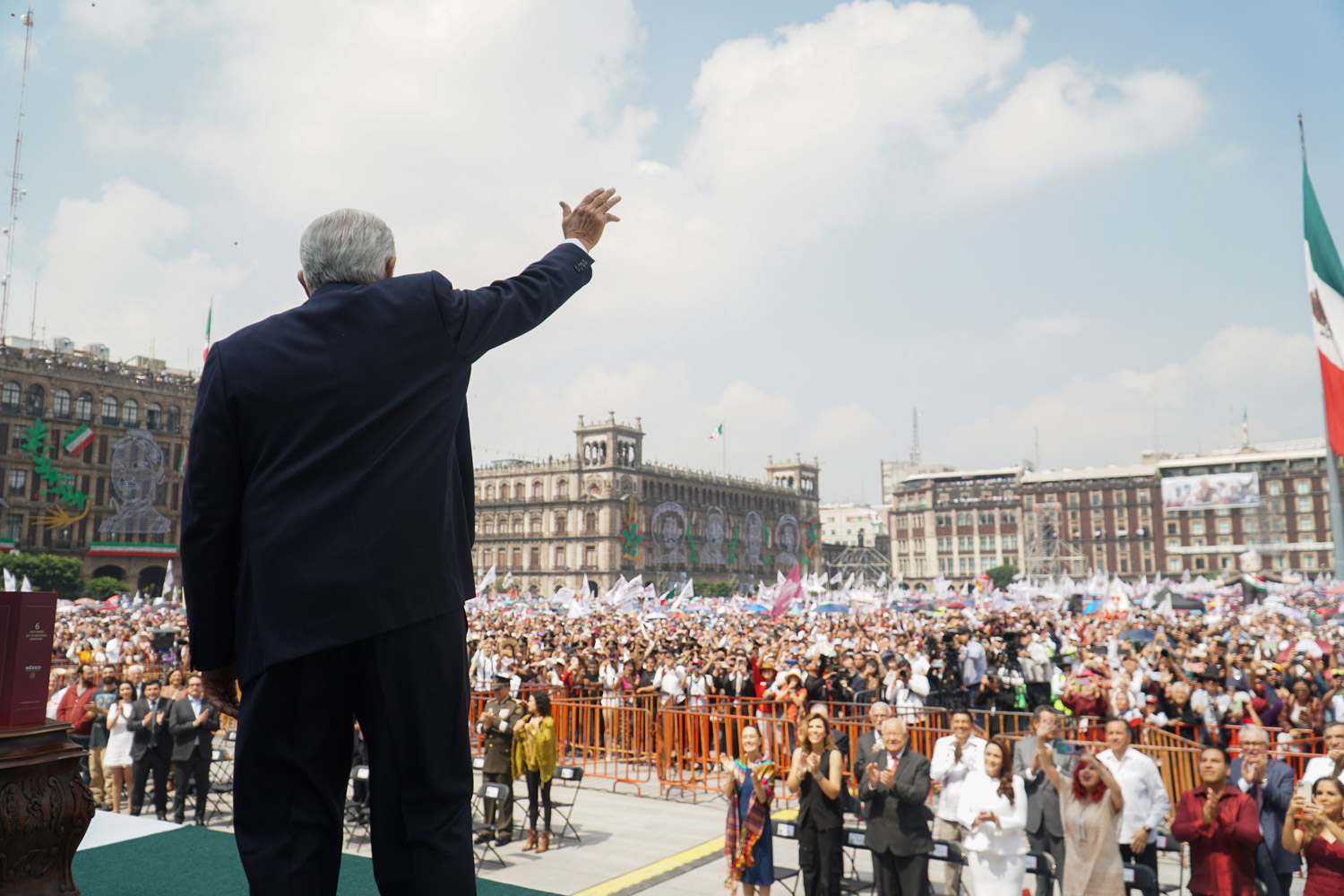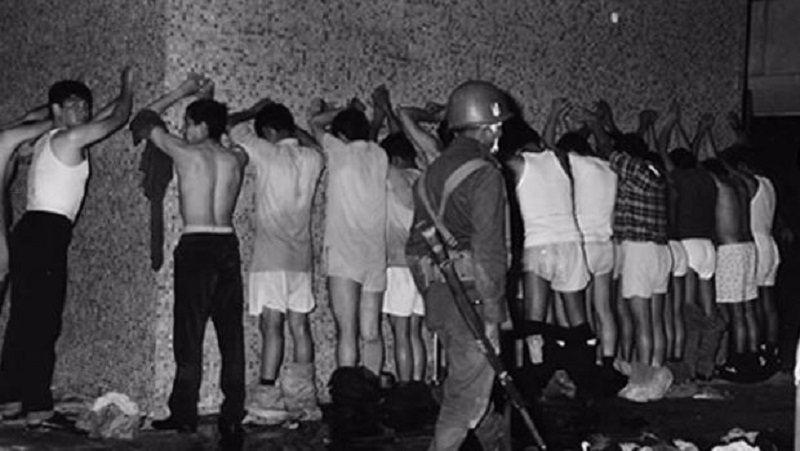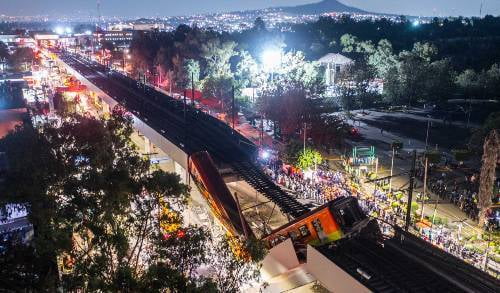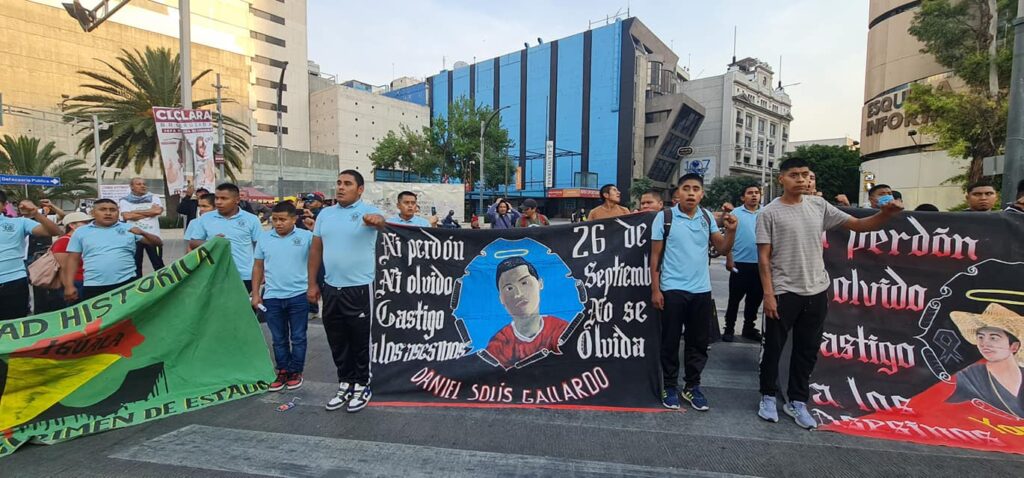Mexico City, Mexico — Mexican President Andrés Manuel López Obrador presented his sixth and final report on Sunday, a month before stepping down from office. In front of thousands of sympathizers, the outgoing populist leader made conflicting claims regarding his administration’s accomplishments.
The 70-year-old also known as AMLO, who first came into power in December 2018, charged his final government briefing with patriotic sentiment and constant references to Mexican history as is his signature, praising past leaders, revolutionaries, and social fighters while denouncing those who for a long time kept the country in a state of poverty and corruption—his political rivals.
AMLO asserted that his political project, called the Fourth Transformation, laid the foundation for the much-needed change in Mexico.
“We are heirs to a glorious past and an exceptional and fruitful history. This largely explains why it didn’t take us much time to reverse the decline caused by neoliberal policies and how we were able, relatively quickly, to lay the groundwork to start a new phase now known and identified as the Fourth Transformation of Mexico’s public life,” said the president in Mexico City’s main square.
However, the achievements lauded by AMLO are misleading at best, and hide the challenges that Mexico and its people still face.
Better than Denmark
One claim made by López Obrador that surprised many was his assertion that the Mexican health system was among the best in the world, continuing with his long-lasting slogan that his government would ensure a better health system than countries like Denmark.
“This public health system is already more effective in the world. I said it would be the best, that it would be like Denmark. No, it’s not like Denmark; it’s better than Denmark,” he said before thousands of his supporters.
Indices like the one compiled by the CEOWORLD magazine have ranked Taiwan as the country with the best healthcare system in 2024, placing Denmark in its 24th spot and leaving the Mexican healthcare system in 45th place.

While international standards might not trouble Mexico’s patriotic leader, local journalistic outlets like Animal Político have documented how AMLO’s administration, for instance, left 6 million children of up to six years of age without vaccination.
The news outlet reported that 575,000 children were not vaccinated in 2018, while the number reached 3.4 million in 2020.
Moreover, as the National Council for the Evaluation of Social Development Policy (Coneval) reported, the number of Mexicans lacking access to health services went from 20.1 million in 2018 to 50.4 million in 2022.
In addition, during the Lopez Obrador administration, Mexicans paid up to 30% more in health care, mainly affecting lower-income households.
Security, Organized Crime, and Human Rights
Regarding security, López Obrador shared that felonies in the country have “reduced by 24.8 percent, and homicides by 18 percent,” highlighting a downward trend in crimes such as kidnapping, theft, and intentional homicides.
However, overall, López Obrador’s government will end as the most violent in Mexico’s history, with 196,438 homicides during his term. Although government data shows that the upward trend has changed with his administration, the data presented by AMLO is misleading.
Animal Politico fact-checked the numbers presented by AMLO and found that the official numbers for homicides indicate a drop of 8.01% between the first half of 2018 and the first half of 2024.
The president also overlooked the disappearance crisis that has completely engulfed the country, with nearly 50,000 disappearances happening within AMLO’s administration, almost half of the 115,000 reported disappearances since the 1960s.
AMLO emphasized the difference in human rights and security in the country, directly accusing his predecessors of having governed Mexico under a state controlled by drug trafficking.
“Unlike what happened in the neoliberal governments, now the people are not repressed, massacres are not carried out, torture is not inflicted, no one is disappeared, human rights violations are not tolerated, and there is no narco-state like the one that was configured during the previous administration,” he claimed.
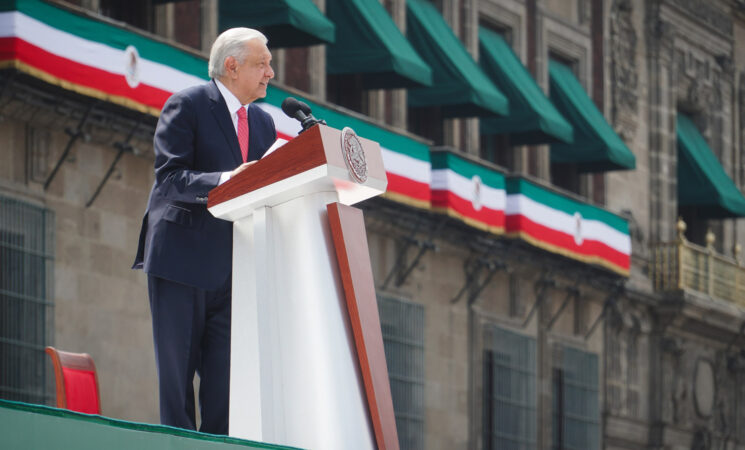
However, AMLO’s security strategy, which has heavily relied on the military, has not been impervious to human rights violations.
Throughout his presidency, serious human rights violations by federal forces, namely the army and the National Guard, have been reported; torture, extrajudicial executions, harassment, and threats have been widely reported across the country.
In 2022, officers of the National Guard, a body created by AMLO in 2019, tortured a man in Quintana Roo in southeastern Mexico, injuring him with a bladed weapon to extract a confession.
Similarly, the National Guard has been accused of involvement in the indiscriminate killing of civilians during confrontations with alleged criminal groups.
Widespread violence in Mexico still keeps political power susceptible to criminal organizations, which attempt to influence and control the country’s political power.
During the recent general elections on June 2, where 34 political candidates were killed, the Mexican people witnessed firsthand how criminal groups attempted to forcibly take over local governments, leaving some areas without elections due to the wave of violence.
Likewise, recent reports of police officers being arrested for their ties to criminal groups such as the Jalisco New Generation Cartel highlight how Mexican democracy remains susceptible to the influence of organized crime.


